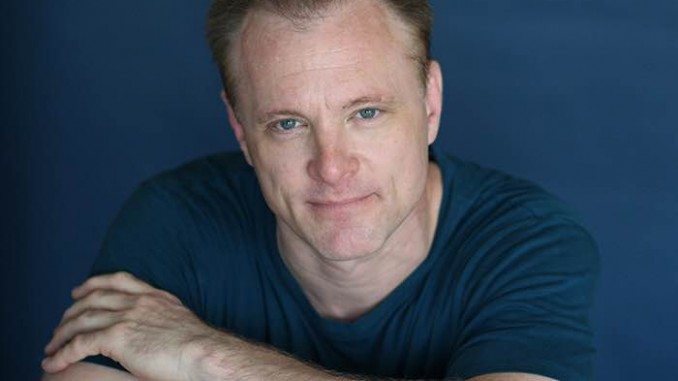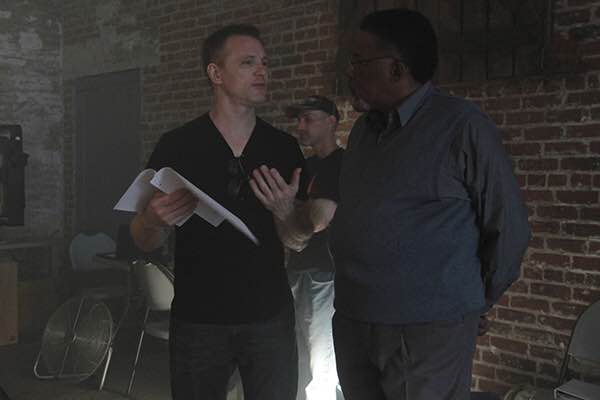
Missing Child Director Luke Sabis Talks Film with OneWest
Luke Sabis is a filmmaker, actor, composer, and former musician known for acting in Cleaver’s Destiny, and directing Missing Child and Ghost Tenant. He performed with the rock band, The Take, in the 1990s. Sabis was born in Brooklyn, New York and grew up in Queens, New York. He attended St. John’s University where he earned a computer science degree; his first job was in this field. He wrote and played rock music with his band, The Take, at The Bitter End, CBGBs, and Kenny’s Castaways, among other places in New York City. Turning to acting, Sabis appeared in some Off-Off-Broadway productions in New York, including as a member of Ken Terrell’s Curan Repertory Company. Sabis went through the film program at Los Angeles City College. Soon after he directed, acted in, and composed the score for his first film, Missing Child. The film was screened at the 2014 Boston International Film Festival, the Dances With Films festival in Hollywood California, and the Hawaii Big Island Film Festival. In May 2015, Sabis’ Ghost Tenant had its world premiere in the Short Film Corner at the Cannes Film Festival.
Sabis’ latest full feature film, Missing Child, had its theatrical premiere at Laemmle Music Hall in Beverly Hills, California and will soon be available on DVD and VOD. One West Magazine sat down with Luke Sabis to talk about his career in film-making and acting in a Q & A setting below.
AO: As a filmmaker what is the hardest part about directing a film?
Luke Sabis:
The hardest part is getting everybody on board with my idea and vision. It sounds like a simple thing, and it should be a simple thing–but the vision isn’t always so clear to me from the start. It is something that evolves through the process of making a film. I start off with a clear idea that forms my vision of the film. That vision will change with the contribution of the actors and crew.
Second, making an idea clear enough to get people on board with it–while leaving it open enough to allow for their input–can be difficult. I see everyone on the set as valuable. Actors and crew not only contribute on a mechanical basis, but they can also be inspired in the moment to contribute more off the cuff.
For example, I made a storyboard for Missing Child for our cinematographer, Francisco Bulgarelli, to give him a general idea of what I was going for. He contributed tremendously to what I gave him. For our set designer– who was one of the more experienced people on the crew, James Thompson–I didn’t think it would be of value in showing the storyboard to him. He was a little upset that I didn’t share that. But what I didn’t want him to do was to copy my limited idea of what a living room set, for instance, was. Had he followed my idea it would have been limiting. I preferred that he read the script and work more in broad strokes and apply his experience in set design, which he did. In the end we were all happier with the result.
AO: What was your inspiration for working in the film industry?
Luke Sabis:
When I was younger, there were movies I had seen on TV, specifically a Henry Fonda film, 12 Angry Men, directed by Sidney Lumet. It’s a famous film about what happens in a jury-deliberation room. I was hyperactive as a kid and I was one who just couldn’t sit still for long periods of time. It was a rainy Sunday, and my older sister was watching 12 Angry Men on TV. The film was fascinating. It caught my attention and I couldn’t break away from it.
Years later I watched Dog Day Afternoon–starring Al Pacino–with the same director, Sidney Lumet. At that point I started connecting the dots between filmmakers I really liked. I liked Lumet’s stories, which were very character based and socially relevant. He dealt with social norms, which I felt were interesting. His work seemed bigger and more important than just entertainment.
My first work in entertainment was playing in bands. I performed at places in New York City like CBGBs, The Bitter End, Kenny’s Castaways, as part of my band The Take. After playing music for a while, I got into acting. I performed on stage in New York, but I wasn’t involved in the overall process, as much. When I was playing music, I was writing and producing our recordings. I had my hands in a lot of different aspects of what we were doing, which I enjoyed. I got back to that with film making which allowed me to be part of each phase of the creative process.
AO: What was inspiration behind your award-winning narrative film, Missing Child?
Luke Sabis:
Part of it was a practical aspect of making a film with a limited budget. I created a story that could be told with limited resources and locations. Going back to 12 Angry Men– that film takes place in a jury room and the bathroom of a jury room. It was twelve characters in a very limited location. Most of Dog Day Afternoon takes place in a bank. But a lot of films I liked were similar in that they took place in a limited number of locations. I was also inspired by Alfred Hitchcock’s films, which often bring an audience into a limited space—for example, Rear Window.
The story of Missing Child was inspired by real missing child listings. I would get them in my mail, mixed in with advertising fliers, and read through them. Most were from children missing within the past six months, but some were missing for five, ten, or even as much as twenty years. And there was a particular story of a girl and her mother who went missing more than twenty years ago, and they’re still considered missing. It was so unresolved, mysterious, and open-ended. I found the story haunting.
These ideas bounced around in my mind, and from there I began working with my co-writer, Michael Barbuto on the story Missing Child. The story takes place over a twenty year period, with the viewer going back in time in the minds of the characters.
I was studying film at LACC at the time and I wanted to make an independent film– like those of the 1990s– And emulate some of that. The 1990s were a time when some indie films had the freedom from studios to do what they wanted to do.
AO: What films are you currently working on?
Luke Sabis:
I’m working on Ghost Tenant. The short film premiered in the Short Film Corner at the Cannes International Film Festival and is a prelude to the feature film, by the same name. I’m polishing the script for the feature. When writing a film, you’re always working on it up to the time that you shoot. It reflects our world, which is always changing at a rapid pace. A film that you write today– even if it’s a perfect script–will evolve. It’s not that you write it, perfect it, and then put it on a shelf. Each film is a work in progress until you completely finish shooting and editing.
The short film Ghost Tenant will be on the Special Features section of the Missing Child DVD which will be available on Amazon.com and missingchild-movie.com.
AO: What awards have you won from your work as Director and Actor?
Luke Sabis:
I won the Special Recognition Award for Directing at the Boston International Film Festival. Charles Gorgano, who plays Henry in Missing Child, won Best Actor.
Missing Child also won best feature at Beyond the Beaten Path film festival in Orange County, California. It was an Official Selection of the Big Island Film Festival in Hawaii and at the Dances with Films festival at the Chinese Mann Theatre in Hollywood, California.
Most recently, the film had its theatrical release at the Laemmle Music Hall in Beverly Hills.
AO: How have the hard times in your life helped you towards moving forward with your skills in film making?
Luke Sabis:
The story Missing Child deals with isolation of characters and people. It addresses loneliness. At the time I was writing the script, I found myself more isolated than was healthy. The characters in Missing Child aren’t comfortable in their own skin. They are trying to find peace– they weren’t necessarily looking for connection–but rather peace within. And for the most part, they weren’t finding it. It was a struggle that persisted throughout the film. Only “Gia” ultimately finds that inner peace.
I acted as the character “Joe” in Missing Child. Joe is a manipulative person. This is a trait I used to snap myself into the character. As a Director you’re being manipulative at times, to get what you want. Joe is more devious than I am, hopefully, but the intent behind being a Director and the character Joe, is similar.
AO: What’s your advice to all young filmmakers working towards accomplishing their career goals as a film/TV director?
Luke Sabis:
It’s important that you let the film evolve through the process. You want as good of a script as you can get going into it, but you don’t want to etch anything in stone. You want that vision so you don’t go far off the deep end, but you also want the input from everyone involved. You want those ideas. You want the flow. You want to keep those channels open. Of course you have to sift through what’s a good idea and what’s not. It’s helpful to focus on the theme of the film. For Missing Child I thought of the theme as, “a character going through a world of darkness looking for some light.” It’s a general way of putting it but I left it open enough so that the actors– and the rest of the crew– could contribute in their own way.
AO: How can your fans and supporters find you online and get to your website?
Luke Sabis:
You can read more about the full story at www.missingchild-movie.com. You can also follow the evolution of Missing Child on Facebook.



Leave a Reply